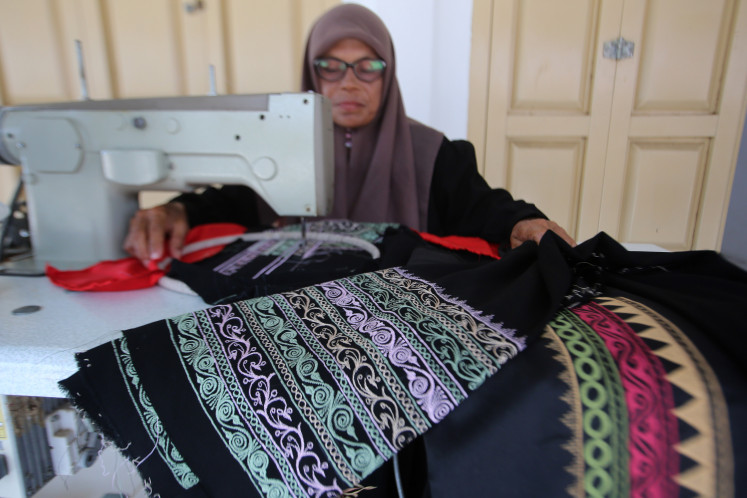Popular Reads
Top Results
Can't find what you're looking for?
View all search resultsPopular Reads
Top Results
Can't find what you're looking for?
View all search resultsImperative for the transparent selection of SOE commissioners
The practice of appointing SOE commissioners from an arbitrary pool of public officials and political loyalists has become tradition, and requires urgent reform lest it undermine public trust, investor confidence as well as the very purpose of state-owned entities: to serve the public.
Change text size
Gift Premium Articles
to Anyone
 A student presents Deputy Higher Education, Science and Technology Minister Stella Christie (right) with a traditional Dayak headband on June 18, 2025, at a visit to SMAN 10 Samarinda senior high school in the East Kalimantan capital, which has been designated Garuda Transformation School. (Antara/ M Risyal Hidayat)
A student presents Deputy Higher Education, Science and Technology Minister Stella Christie (right) with a traditional Dayak headband on June 18, 2025, at a visit to SMAN 10 Samarinda senior high school in the East Kalimantan capital, which has been designated Garuda Transformation School. (Antara/ M Risyal Hidayat)
T
he public was recently taken aback by the government's decision to appoint 55 deputy ministers and several political figures involved in the 2024 presidential campaign as commissioners at various state-owned enterprises (SOEs).
This is not a new phenomenon. Instead, it appears to have become a tradition for each presidency. Unfortunately, there has been no comprehensive evaluation of this practice from a constitutional law standpoint.
The practice therefore raises a fundamental question: Is the appointment of elite political figures or regime loyalists as SOE commissioners aligned with the principles of accountability and fairness in a system of democratic governance?
From the perspective of constitutional law, the principle of good governance serves as a fundamental guideline in managing public institutions, including SOEs. The appointment of SOE commissioners without a transparent selection process violates the principle of meritocracy and opens the door to abuse of power.
SOEs function as extensions of the state in executing economic policies aimed at promoting public welfare, as mandated by Article 33 of the 1945 Constitution. Therefore, individuals appointed to a strategic position like commissioner must undergo an open, professional and competency-based selection process. Without this, SOEs risk shifting from public service institutions to mere political instruments.
The instantaneous appointment of political actors or campaign operatives without a proper selection process also undermines the principle of checks and balances, since commissioners play a critical role in overseeing corporate governance. If these roles are filled by individuals with political allegiances or conflicts of interest, their supervisory function becomes ineffective.
Several legal frameworks explicitly or implicitly prohibit state officials from holding concurrent positions at SOEs.


















